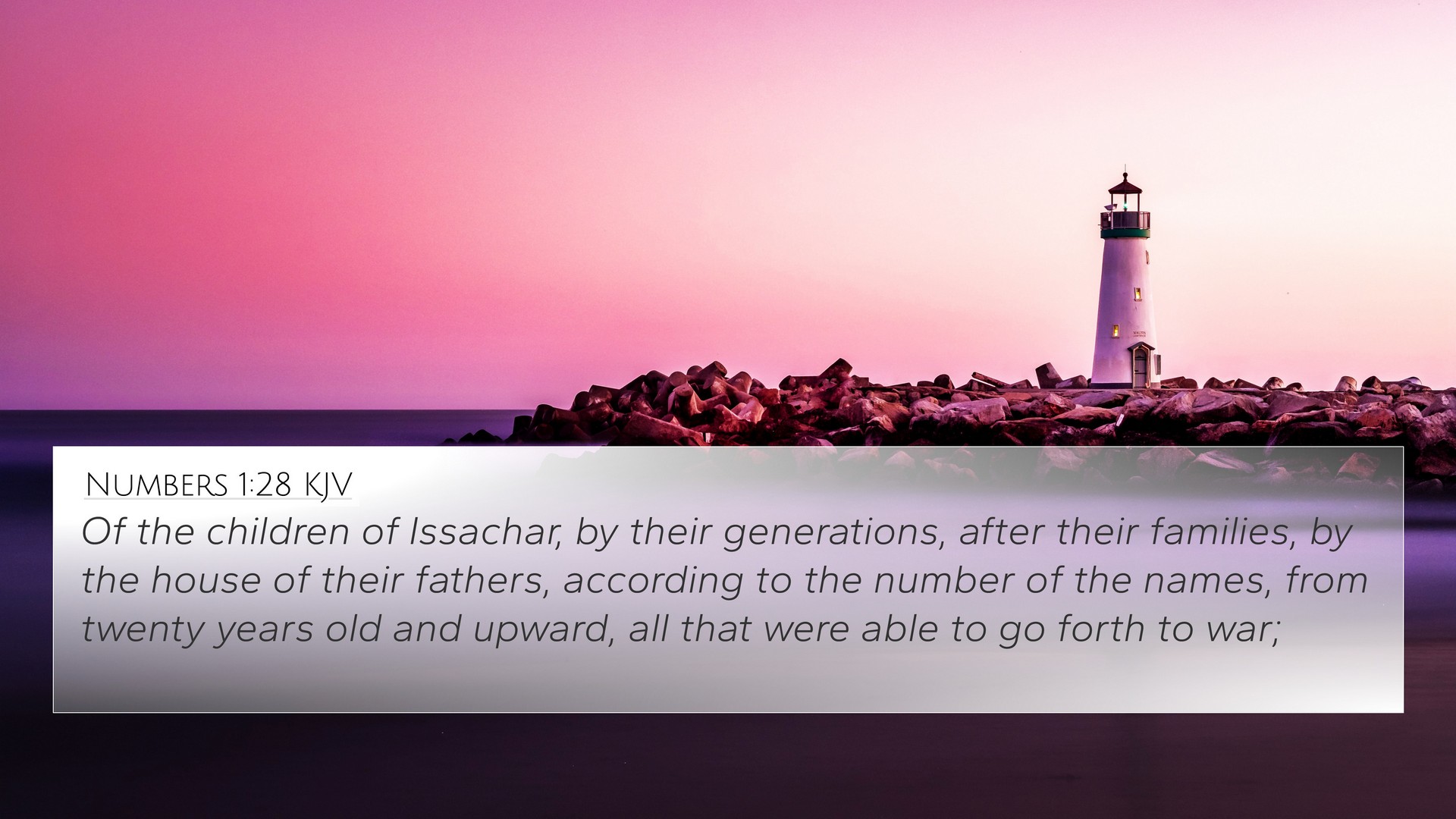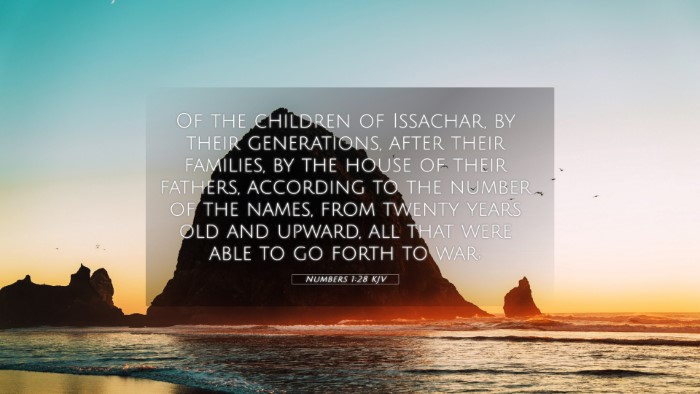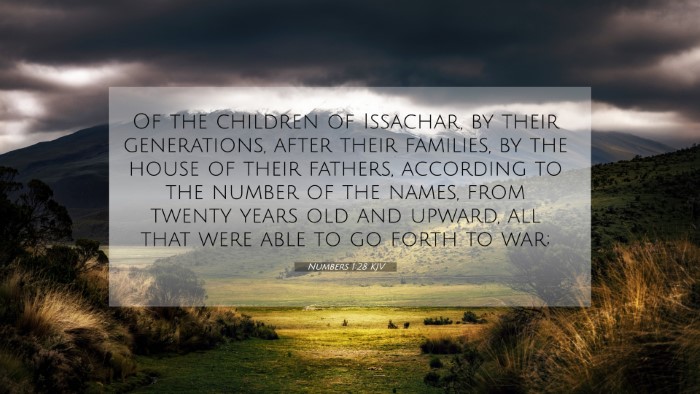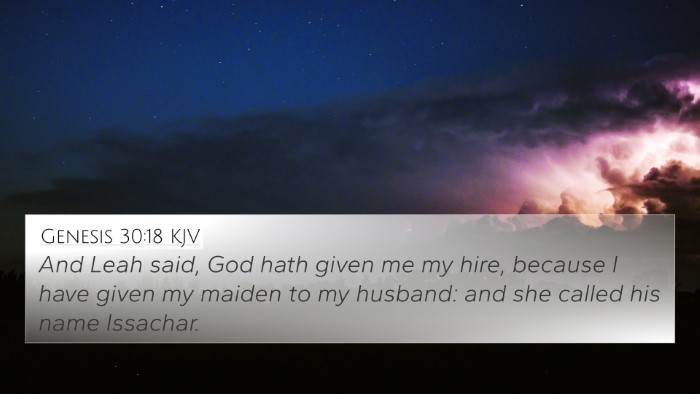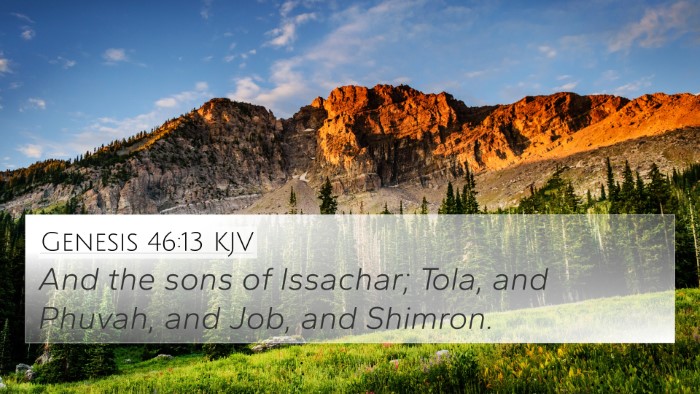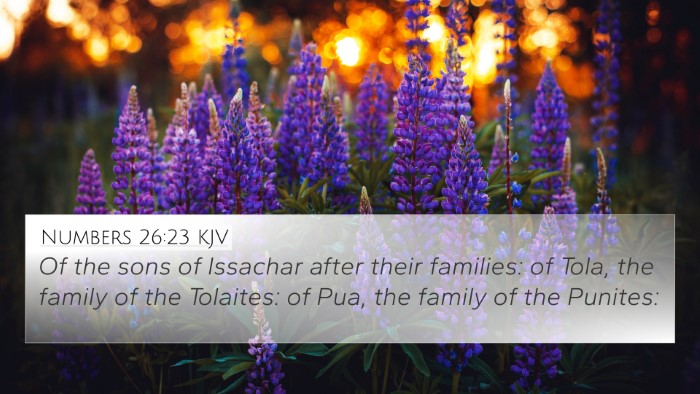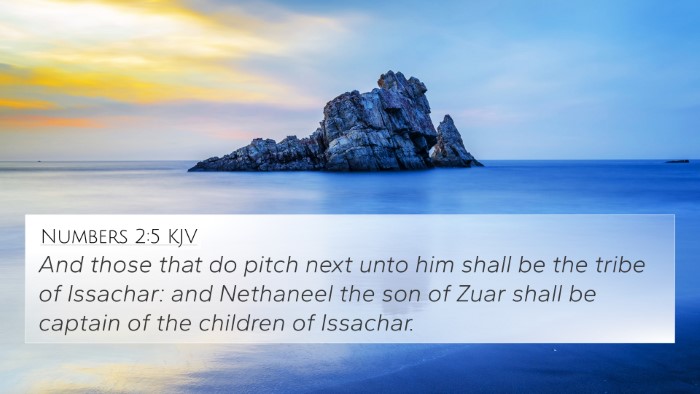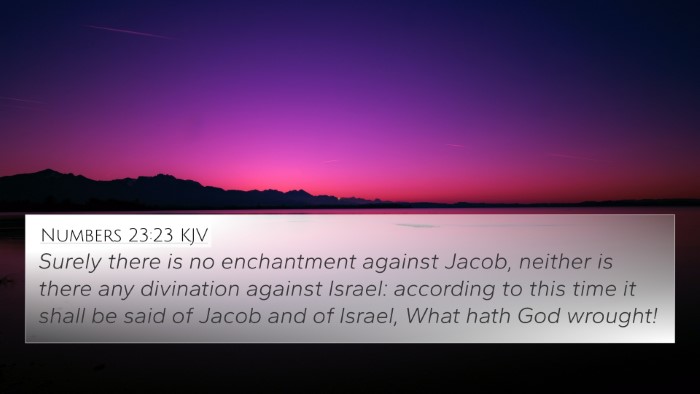Understanding Numbers 1:28
Numbers 1:28 states:
"Of the children of Issachar, by their generations, after their families, by the house of their fathers, according to the number of the names, from twenty years old and upward, all that were able to go forth to war."
Verse Meaning and Context
This verse is part of a larger narrative in which God instructed Moses to take a census of the Israelites. Here, the focus is on the tribe of Issachar, specifically noting the military readiness of its members. The meticulous counting of individuals fit for battle demonstrates God's preparation and organization as the Israelites were about to enter the Promised Land.
Key Insights from Commentaries
-
Matthew Henry:
Henry notes that the census was not only a military count but also emphasized the importance of each tribe’s contribution to the nation of Israel. The tribe of Issachar is highlighted for its wisdom and understanding, which would be crucial in their journey.
-
Albert Barnes:
Barnes elaborates on the significance of the numbers, indicating that the age of twenty was a benchmark for maturity and capability in warfare. He also indicates that this count was necessary for the organization of the tribal divisions in battle formation.
-
Adam Clarke:
Clarke emphasizes that the mention of "all that were able to go forth to war" not only quantifies but also reminds the Israelites of God's providence and the purpose of their journey—conquest and inheritance of the promised land.
Bible Verse Cross-References
This verse connects with various scriptural themes and other verses. Notable cross-references include:
- Exodus 30:11-16: The census regulations and their purpose in the community.
- Numbers 26:23-25: Further enumeration of the tribe of Issachar.
- 1 Chronicles 12:32: The wisdom of the men of Issachar in understanding the times.
- Deuteronomy 33:18-19: Moses' blessing for the tribe of Issachar.
- Judges 5:15-16: The tribe’s involvement in Deborah's leadership and military conquests.
- Genesis 49:14-15: Jacob’s prophetic words about Issachar’s characteristic traits.
- Isaiah 40:29-31: Themes of strength and renewal, though not directly related to military service, highlight God’s support for His people.
Thematic Bible Verse Connections
The census revealed the organizational structure and militaristic preparedness central to the Israelites’ identity as a chosen people. By examining connections between Bible verses, we can explore:
- The nature of God's authority and guidance in warfare.
- The role of wisdom among the tribes, particularly as seen in the tribe of Issachar.
- The significance of generational legacy and the passing down of duties among God’s people.
Comparative Bible Verse Analysis
In a comparative analysis, we observe how Numbers 1:28 aligns thematically and contextually with other verses discussing military readiness and God’s instruction. For example:
- The military counts in 1 Chronicles 21:5 enhance our understanding of God's plans for His people.
- Passages like Joshua 6:2 show the outcomes of obedience to God's commands in battle.
Tools for Bible Cross-Referencing
Utilizing a Bible concordance and cross-reference Bible study methods allow for a deeper understanding of interconnected scriptures. Resources can help navigate:
- Bible cross-reference guide
- Comprehensive Bible cross-reference materials
How to Use Bible Cross-References
To fully explore the meanings of verses like Numbers 1:28, it's important to understand:
- Identifying connections between Old and New Testament narratives.
- Comparative study of Pauline epistles to discern themes of faith and fortitude.
- Using tools for identifying connections between verses within the same book or across the entire Bible.
User Intent Keywords
For those seeking to understand connections between scriptures such as:
- What verses are related to Numbers 1:28?
- Find cross-references for Numbers 1:28.
- How do Numbers 1:28 and 1 Chronicles 12:32 connect?
- Similarities between Numbers 1:28 and Deuteronomy 20:1.
Conclusion
Numbers 1:28 serves as a rich source for understanding the organizational principles of the Israelites as commanded by God. By engaging with various public domain commentaries, cross-references, and tools, readers can uncover deeper layers of meaning within this verse and its connections to the broader biblical narrative.
